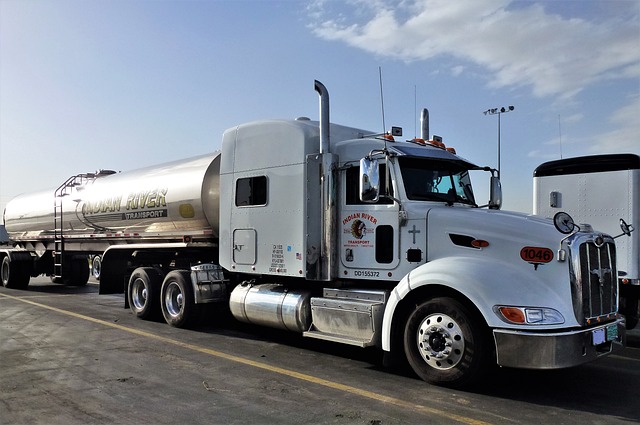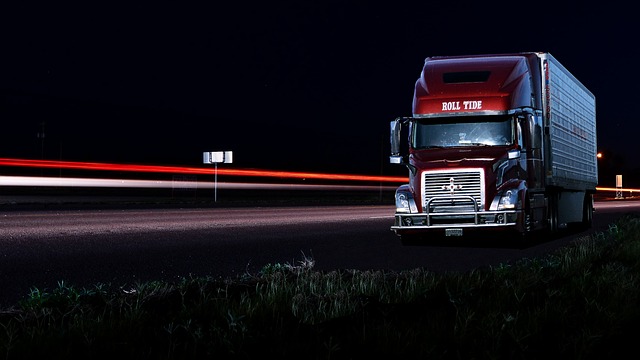For new trucking ventures, it's crucial to secure startup trucking coverage that balances comprehensive protection with affordability. This specialized insurance is tailored for new businesses, offering robust liability and cargo coverage for new fleets, as well as physical damage insurance to safeguard against unforeseen events. As operations expand, maintaining cost-effective yet extensive trucking insurance becomes vital for managing financial risks and ensuring compliance in the competitive trucking industry. Startups must carefully select their insurance partners to navigate potential legal claims and operational challenges, with liability insurance being a key component to protect against transit losses or damages. By investing in the right mix of insurance policies from the outset, startups can establish a reliable reputation, maintain financial stability, and position themselves for sustainable growth amidst the demands of the trucking sector.
navigating the complexities of trucking insurance is a critical task for startup trucking businesses. This article outlines essential strategies for laying audit-ready foundations and securing compliant, cost-effective insurance solutions from the outset. From comprehending cargo coverage to understanding physical damage insurance needs, and ensuring liability compliance, new fleet owners will gain insights into becoming audit-proof and obtaining startup trucking coverage that protects their assets and operations without breaking the bank.
Laying the Groundwork for Audit-Ready Practices in Startup Trucking Businesses

For startup trucking businesses, laying the groundwork for audit-ready practices is not just a compliance measure but a foundational strategy for long-term success. From the outset, it’s crucial to secure comprehensive trucking insurance that caters specifically to new businesses. This includes obtaining startup trucking coverage that encompasses small business truck insurance, ensuring that your operations are protected against various liabilities. As you expand your fleet, affordable trucking insurance becomes imperative to manage risks effectively without compromising on essential coverages such as cargo coverage for new fleets and physical damage insurance to safeguard your vehicles from unforeseen events.
Navigating the complexities of compliance and securing the right insurance is a multifaceted task that demands meticulous attention. New businesses in the trucking industry must prioritize liability insurance to shield against legal claims, which are an inherent risk in transportation operations. Additionally, understanding the nuances of cargo insurance is vital, as it provides critical financial protection for goods in transit, a cornerstone of reliable service. By partnering with experienced insurance providers, startups can tailor their policies to align with their specific needs and budget constraints, ensuring that their new fleet insurance is both comprehensive and cost-effective. This proactive approach not only prepares your business for audits but also positions it as a trustworthy and responsible player in the competitive trucking landscape.
Navigating the Nuances of New Fleet Insurance: Affordable Options for Small Business Truck Insurance

For new businesses venturing into the trucking industry, securing appropriate and affordable trucking insurance is paramount. Startup trucking coverage is tailored to meet the unique needs of small business owners who are just beginning to navigate the complexities of fleet management. These policies are designed to protect against a range of potential risks, from liability arising from accidents involving trucks to cargo loss or damage during transit. Ensuring that your new fleet insurance includes robust coverage for both liability and physical damage is crucial in safeguarding your business’s financial health. Moreover, as you expand your operations, consider the importance of comprehensive cargo coverage to protect against losses due to theft, natural disasters, or other unforeseen events that could disrupt your business operations. By carefully selecting your trucking insurance options from the outset, you can establish a solid foundation for compliance and risk management, ensuring peace of mind as your fleet grows.
Understanding Cargo Coverage and Physical Damage Insurance Needs for New Fleets

As a new entrant in the trucking industry, understanding the nuances of cargo coverage and physical damage insurance is crucial for safeguarding your operations against unforeseen events. Startup trucking coverage, often more affordable than anticipated, can be tailored to fit the specific needs of new fleets. It’s not just about finding trucking insurance that minimizes costs; it’s about securing small business truck insurance that provides comprehensive protection without compromising on quality or coverage scope. For new businesses, liability insurance startups are as vital as the vehicles they operate. Ensuring that your cargo coverage new fleets policy accounts for both the goods in transit and potential damage to the trucks themselves is a prudent step towards long-term success and reliability in the eyes of clients and partners.
Navigating the intricacies of insurance can be complex, but it’s an investment that protects your assets and business continuity. Affordable trucking insurance options are designed to cater to the dynamic needs of new fleets, offering a shield against losses due to physical damage and cargo mishaps. It’s essential for startups in the trucking sector to recognize that investing in robust cargo coverage and physical damage insurance is not just a cost center but an investment in peace of mind and operational resilience. As your fleet grows and encounters diverse challenges on the road, having the right insurance partner by your side can make all the difference in overcoming adversity and thriving in this competitive industry.
Ensuring Compliance with Liability Insurance Startups in the Trucking Sector

As new businesses in the trucking sector emerge, securing robust and affordable trucking insurance is paramount for ensuring long-term viability and compliance. Startup trucking coverage must encompass not only liability insurance startups but also include cargo coverage for new fleets to protect against loss or damage during transit. New fleet owners often operate on thin margins, necessitating insurance solutions that strike a balance between comprehensive protection and cost-effectiveness. This is where small business truck insurance becomes a critical component, safeguarding both the company’s assets and its financial stability against unforeseen events, including physical damage to the trucks themselves.
Navigating the complexities of the trucking industry’s regulatory environment, it’s essential for new entrants to understand that liability insurance is just one aspect of a broader risk management strategy. Adequate coverage not only ensures compliance with federal and state regulations but also fosters trust among clients and partners, who expect assurance that their goods are protected throughout the supply chain. Startups in the trucking sector should explore various options for cargo and liability insurance to find the most suitable and cost-effective solutions tailored to the unique risks of operating a new fleet. This proactive approach not only protects the startup’s financial health but also positions it favorably for sustainable growth within the competitive trucking landscape.
In conclusion, for startup trucking businesses, laying the groundwork for audit-ready practices and securing comprehensive insurance coverage from the outset is not just a smart strategy—it’s an imperative. By adopting audit-ready protocols early on, these new ventures can streamline operations, minimize financial risks, and foster trust with stakeholders. Meanwhile, navigating the array of trucking insurance options available to small businesses, such as cargo coverage for new fleets and affordable yet robust liability insurance, is key to safeguarding against unforeseen events. As a startup in the competitive trucking sector, understanding and prioritizing both compliance and coverage ensures that your business can endure and thrive amidst the complexities of the logistics industry.
